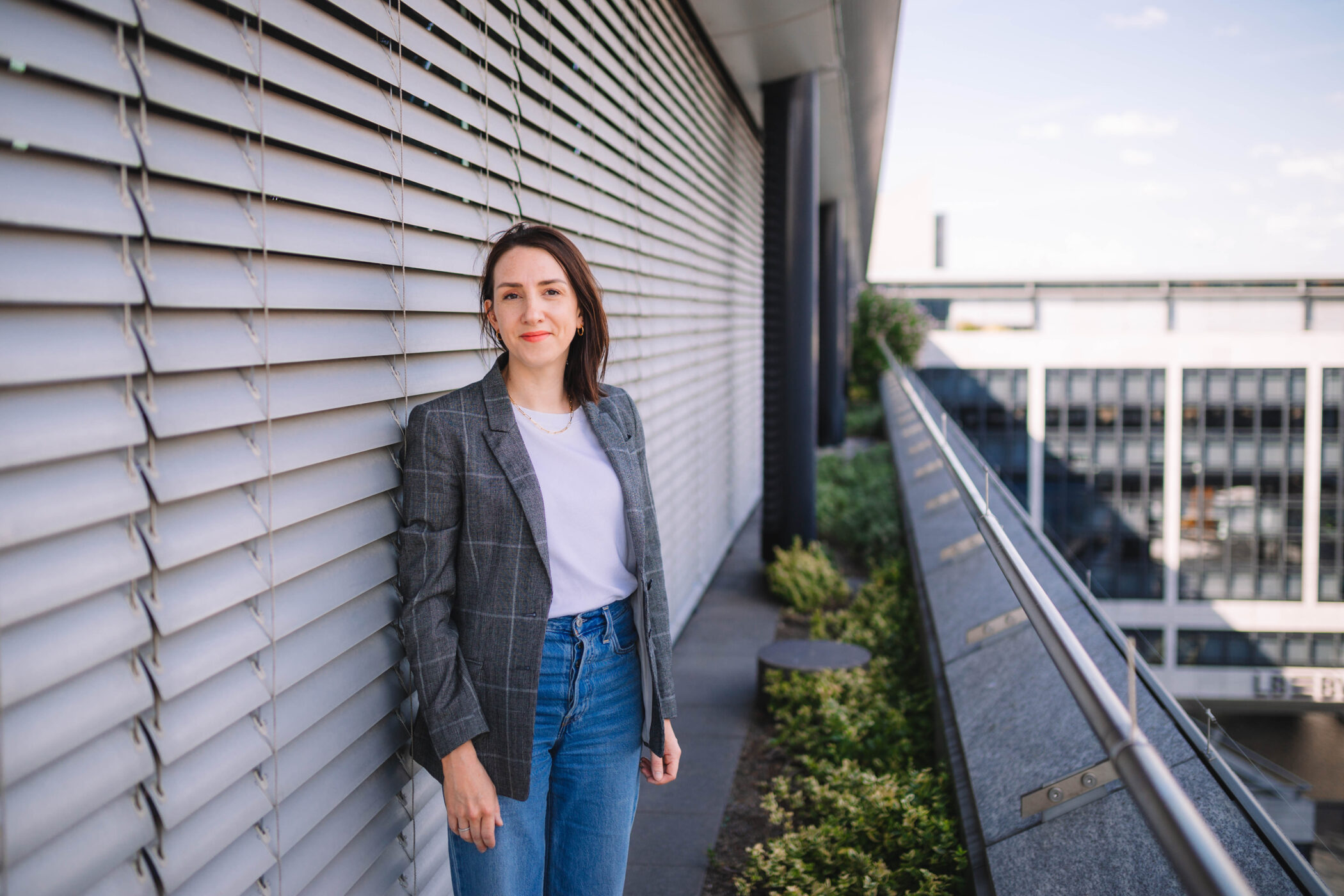Reading time: 2-3 minutes
Summary:
This story is related to the LBBW Finance Challenge, focusing on Impact Investing & Sustainability Transformation. It explores how the challenge works within the context of SWIAT & dApps, highlighting its achievements and goals.
The three key pillars of the challenge are collaboration, openness (in terms of transparency, but also related to open innovation), and sustainability.
The whole package is enriched with personal anecdotes (Erik Frank, a startup founder, with his ties made of recycled ocean plastic; Friederike Burckhardt, and her engagement with Greenpeace/Green Team and performative energy-saving lamp intervention at a Baumarkt).
Additionally, the story emphasizes the important role of LBBW in the implementation of sustainability goals and social responsibility, as well as the development of personal ideals.
The world of finance is undergoing a transition. Emerging technologies and their diverse applications, as well as new players and disruptive innovations are giving rise to new business models and unexpected collaborations with purpose. Even within the financial industry, targeted collaborations and investments are steering change in a sustainable direction in order to achieve long-term positive impact.
The need for sustainable investments, encompassing integrated sustainability transformations, is a given. The good news is that we have all the prerequisites and a wide range of opportunities to meet this need with positive intentions and advanced technologies.
LBBW's participation in the ekipa Future Finance Open Innovation Program shows how new thinking, future technologies, and collaborations enable sustainable and social innovations to flourish. Yes, this requires a tendency toward openness and confidence, as operating in the financial markets always involves some level of risk that cannot be entirely eliminated.
Friederike Sofie Burckhardt, Business Analyst at LBBW, describes the current developments as follows: "SWIAT is a blockchain by banks for banks. Houses that are actually competitors are joining forces to create a common infrastructure and further advance the digitalization of the financial sector. By combining our ideas and expertise, we are faster, more efficient, and more cost-effective in the market. It's simple: whoever cooperates wins."

In this context, we refer to "coopetition", which is a combination of joint development and subsequent competition. "Financial institutions today are leaving old dogmas behind and opening up to each other. Together, you build knowledge and share it with partners; at the same time, you create in-house products and services for securities processing and offering them to customers," adds Erik Frank, Digital Transformation Consultant Sustainable Finance at LBBW.
SWIAT technology, based on Ethereum, is a strong driver: "it is a "technical gateway" for projects with impact," Friederike tells us enthusiastically. And that's where an important role for banks comes in: "Our ambition is and should be to take responsibility, and to exercise our steering function in a way that gives a positive, impactful direction to the needed sustainability transformation."
This is precisely where LBBW's Challenge comes into play and invites us to think further: blockchain-based dApps* are used to promote, develop, and accelerate impact investing. These "decentralized applications" are explicitly sought after in the LBBW Challenge. The aim is to make it easier for investors to discover, invest in, and trade sustainable assets. In addition, this investment format ensures a high degree of transparency and responsibility. The possibility of using dApps to obtain information about the projects themselves and how they are progressing is likely to be of particular interest to investors who are pursuing positive, especially sustainable, and social effects through their investments. This includes the transformation of the clothing industry, the creation of educational and training opportunities, ESG or diversity projects and inclusion models, as well as initiatives to preserve and promote biodiversity.

Friederike emphasizes that LBBW consciously left the challenge call open-ended so as not to restrict too much in advance. More important, she says, is for investors to know where the money is going and what happens to it. "More and more investors are looking for the most meaningful use cases; they want their funds to address specific issues while having the certainty that they are making a positive difference. Our role is precisely to promote smaller initiatives and enable flexible investments. We consider this as our clear social mission and, as a state bank, we take responsibility while ensuring investor protection via tokenization," emphasizes Friederike, who has previously participated in Greenpeace campaigns and interventions as a teenager to advocate that companies rethink ecological matters.
This is precisely one of the advantages of blockchains or blockchain-based assets, Erik adds: "The use of blockchain and specifically tokenization allows for smaller tickets, which in turn makes it easier for retail investors to invest." Erik also recognizes another important role for LBBW in the implementation of specific sustainability goals and the Landesbank's social responsibility. Furthermore, LBBW also demonstrates what's possible when it comes to developing personal ideals: "Here, not only can I promote, strengthen, and steer much-needed impact investing, which accelerates the urgent sustainability transformation, but I can also fulfill my heartfelt desire in this area."

Long before joining LBBW, Erik gained startup experience designing, producing, and launching ties made from recycled marine plastic. His subsequent entry into the world of finance and blockchains occurred through the stock market, where he worked at the intersection of traditional capital markets and digital assets. Now, within a strong financial institution, Erik can combine these experiences and promote impactful initiatives with positive impact, shaping the future of the planet in a sustainable way. "This is what makes our Challenge so attractive for innovators and startups who want to follow sustainability goals and support them precisely through a dApp," Friederike confirms.
Now, we are very excited to see the participants’ creative approaches in the Future Finance Innovation Program and the future of impact investing facilitated by blockchain-based dApps.
LET’S INNOVATE THE FINANCIAL WORLD TOGETHER.
#FutureFinance #FinanceInnovation #InnovateTogether
* SWIAT is a software developer for financial market infrastructure that is working on a digital platform where regulated financial market players will be able to issue, trade, and settle any type of asset on the blockchain in the future. LBBW has been involved since the beginning of 2023. The goal of the new shareholders and partners is to “create a uniform standard for processing blockchain-based securities through SWIAT.”
* Decentralized Application (short: dApp: decentralized application) refers to applications that are stored on a decentralized network. dApps are stored on a blockchain-based peer-to-peer network such as Ethereum and not centrally on a server.
Read more about LBBW's Challenge on the ekipa Open Innovation Platform: https://app.ekipa.de/challenges/finance-lbbw/brief. Submission deadline is July 30, 2023.
LBBW (Landesbank Baden-Württemberg) is the universal bank for medium-sized corporate customers. The bank accompanies its customers on the path of transformation along the entire value chain in a data-driven and networked world - and also seizes the opportunities of digitalization itself. The topic of sustainability has a long tradition at LBBW: For more than 200 years, LBBW has been helping to shape the transformation of companies and society. https://www.lbbw.de/
